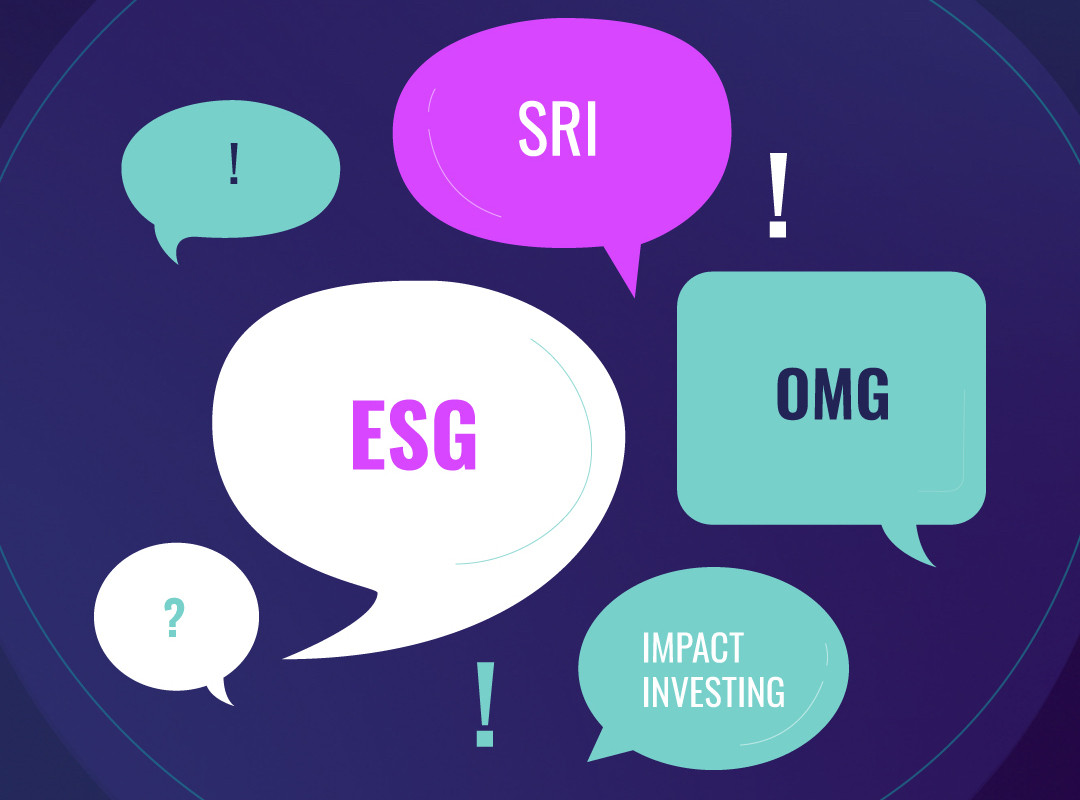 Back to Learn page
Back to Learn page

5 Impact Investing Examples: How Investors Push for Change
There is a growing number of investors who aren’t satisfied with just financial returns, they want to know that their investments are creating a better world. This desire to make change is at the core of impact investing.
Impact investing refers to when investments are made with the intention of generating positive and measurable social or environmental impacts. Typically, an investor will have an idea of what impact they want to have, and then seek out investments to create that impact. This could mean investing in renewable energy companies to promote decarbonization, investing in minority-led companies to promote the work of underrepresented groups, and so on.
But what does this look like in practice? Here are a handful of impact investing examples for interested investors
Example #1: Impact investing in diverse founders
So many startups rely on venture capital funding in order to get up and running. But where that VC cash flows isn’t always equitable.
One study found that 77% of VC dollars go to startups led by white founders. In 2021, a record year for VC funding, only 1.3% of all U.S. venture and growth equity financing went to companies led by Black founders. Harlem Capital hopes to close that funding gap.
Harlem Capital started in 2015 as a syndicate of angel investors, and evolved over the years into a fully-fledged VC firm. The company debuted with its inaugural $40 million fund in 2019 and plans to invest in 1,000 diverse founders over the course of 20 years. After using that $40M fund to invest in 23 companies, Harlem Capital raised a $134 million fund to invest in even more diverse founders.
These diverse founders are building an array of diverse solutions, from credit platforms that provide wider access to loans, to a relationship wellness app for couples, gig marketplace for independent workers, and more.
“We fundamentally believe we are a venture fund with impact, not an impact fund. The way we generate impact is to give women and minority entrepreneurs ownership,” Harlem Capital managing partner Henri Pierre-Jacques told TechCrunch.
Example #2: Impact investing in the oil industry
In late 2020, a small activist hedge fund called Engine No. 1 acquired a $40 million stake in oil giant ExxonMobil, worth about 0.02% of the company’s shares. The hedge fund then wrote an open letter to Exxon’s board of directors to explain why.
In that letter, Engine No. 1 pointed out the ways that Exxon had been struggling and failed to deliver shareholder returns. It also pointed out a four-part strategy for fixing this: 1) refresh the board of directors with people who has experience in the energy industry 2) become more disciplined in managing long-term capital allocation 3) implement a plan for the business to thrive in a world pushing away from fossil fuels, and 4) realign management incentives with creating shareholder value.
Engine No. 1 then nominated four new directors for Exxon’s board, and campaigned for them during proxy season. After gaining the support of some of Exxon’s largest shareholders, three out of four of those directors won seats on the board. After that, Exxon started making measurable advancements towards its new goals. For example, the company committed $15B towards investing in low-carbon solutions over a six year span, announced new scope 1 and scope 2 greenhouse gas targets for 2030, added a low-carbon solutions business unit and got the former head of General Motors’ Cruise to lead it.
Example #3: Impact investing in response to apartheid
Word about the injustices committed in apartheid-era South Africa spread across the world. While many South African groups fought for their rights, international organizations also joined in to show support in their own way.
By the 1970s and 80s, students at American universities were protesting in solidarity with South African students. Although these American students were thousands of miles away, they thought they could help by pressuring their universities to divest from companies that supported the apartheid regime.
By 1988, 155 colleges across the US and Canada had divested from South Africa. And soon this movement spread beyond universities. By the end of 1989, 26 states, 22 counties, and over 90 cities had also created policies against companies doing business in South Africa.
This pressure caused many US businesses to pull out of South Africa. From 1985 to 1990, over 200 US companies collectively pulled out of South Africa, resulting in a loss of $1 billion in direct investment dollars. Other countries put pressure on their companies to pull out of South Africa too, and by the early 1990s, the South African economy was feeling the effects of capital flight.
Example #4: Impact investing in Chicago
Sometimes impact investing is most felt at the local level. The Chicago Community Trust is a foundation that connects philanthropic donors, local organizations, and generous individuals who want to use their money to create a positive impact within the Chicago community.
In 2020, the foundation launched an impact investing platform to help facilitate impact-driven investments. The platform also helps investors measure the impact of their contributions by showing if they help low-income neighborhoods, go to businesses run by minority or women owners, help provide affordable housing, or if they provide capital to sustainable energy initiatives.
Example #5: Impact investing in agricultural development
Lots of people talk about ending world hunger, what are some ways to actually do that? According to Root Capital, by investing in agricultural enterprises in the developing world.
Since 1999, Root Capital has been investing in agriculture businesses in Latin America, sub-Saharan Africa, and Southeast Asia. Not only does the organization supply capital, it also provides training to help these companies grow.
In addition to creating more steady sources of food, Root Capital also aims to use its investments to help alleviate local poverty, protect the planet, and advance gender inclusion.
To date, the organization has distributed $1.6 billion to over 750 clients, representing 2.3 million farmers and $4.6 billion in economic activity.
Risks:
Employing ESG strategies may not result in favorable investment performance. The returns on a portfolio consisting primarily of Environmental, Social and Governance (“ESG”) aware, diversity equity and inclusion (DEI), impact investing, or faith-based investments may be lower or higher than a portfolio that is more diversified or where decisions are based solely on investment considerations. Because ESG criteria exclude some investments, investors may not be able to take advantage of the same opportunities or market trends as investors that do not use such criteria.
∙ ∙ ∙
The views expressed are those of the author at the time of writing, are not necessarily those of the firm as a whole and may be subject to change. The information contained in this advertisement is for informational purposes and should not be regarded as an offer to sell or a solicitation of an offer to buy any. It does not constitute a recommendation or consider the particular investment objectives, financial conditions, or needs of specific investors. Investing involves risk, including the loss of principal. Past performance is not indicative or a guarantee of future performance. We do not provide tax, accounting, or legal advice to our clients, and all investors are advised to consult with their tax, accounting, or legal advisers regarding any potential investment. The information and any opinions contained in this advertisement have been obtained from sources that we consider reliable, but we do not represent such information and opinions are accurate or complete, and thus should not be relied upon as such. This is particularly true during periods of rapidly changing market conditions. Securities offered through Fennel Financials, LLC. Member FINRA SIPC.

Expand your knowledge further

Shareholder activism is a channel to create impact by influencing company policy from within.

Shareholder activism is one of the tools in a union's arsenal.

Companies are reprioritizing their values by becoming public benefit corporations.

Active ownership could help ESG investors push for more impactful change.

‘Tis the season — the season where some of the largest public companies have their annual general meeting (AGM) and shareholders get to vote on important business decisions.

Let's take a look back at some of the things that happened during last year's AGM season.

Greenwashing is a superficial and sometimes misleading way companies claim sustainability.

Some investors have a hypothesis that ESG investments generate stronger, more sustainable returns over the long term.

There are a lot of terms used in the world of impact investing, what do they all mean?

Active ownership could help ESG investors push for more impactful change.
Take back the power of your investment
